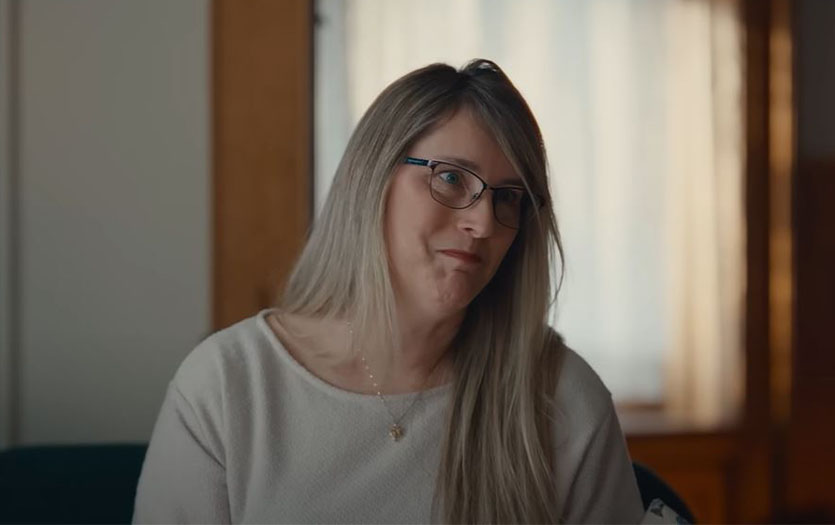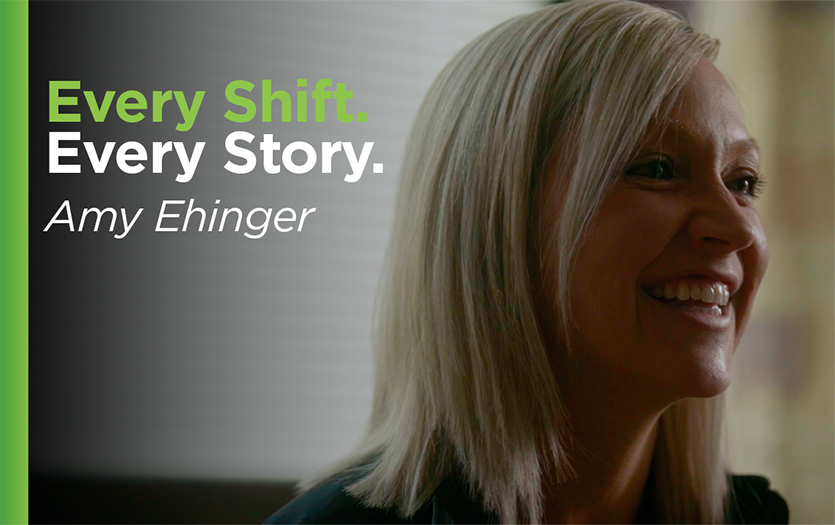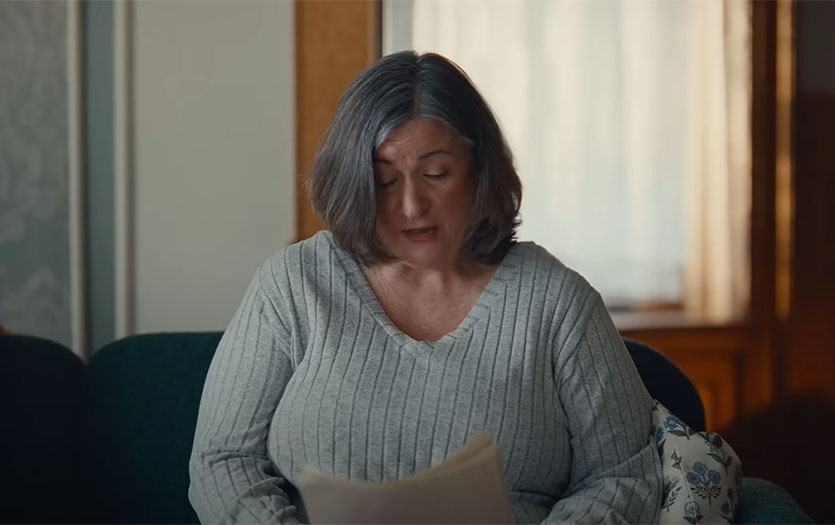
It’s fair to say that 2018 was not Stephanie Beesley’s easiest year. The Parkview co-worker recently shared her inspiring story of perseverance and the power of a positive perspective.
In early 2018, I would have described myself as a healthy adult. I was 52. I walked daily, did light weights and stretching. I rode my bike a lot. I was active, not sedentary. I had stress with my routine, but not too much. I had a great family life. In fact, I’d just welcomed my first grandson.
I had been a bedside nurse for Parkview for 22 years, but in August 2017, I stepped into a new role, as an educator for the Parkview Heart Institute. One of the components of the health system’s co-worker benefits, is an initiative called “My well-being”, which emphasizes getting the recommended health screenings. For me, in 2018, this included routine blood work, a mammogram and a colonoscopy.
I will admit, I was not a “good girl”. It had been two years since my last mammogram. It’s important that I keep up on them because I have dense breasts and a family history. My mother had breast cancer in her 60s and her mother died of breast cancer in her early 60s.
In March, I was on vacation at my parents’ and everything was fine. I came back home and had a My Well-being reminder to get my mammogram. A week later, I felt a lump in my right breast. I knew it was different. I made an appointment with a nurse practitioner, and when she saw the lump things got very busy. I got into the Breast Diagnostic Center within a week for a mammogram and ultrasound.
The radiologist took me back and said he believed it was cancer and wanted a biopsy. I’m an educator, and I had a class with 30 people waiting for me, so I postponed the biopsy to the next day. Teaching was a distraction, but it also gave me time to think about how I wanted to tell my family. I needed to plan how I would share the news with my husband, and my children, who lost their father to head, neck and throat cancer when they were teenagers. To wrap my head around calling my mom and dad and telling them. It was scary.
By Monday, I’d been diagnosed with estrogen-progesterone HER2-negative breast cancer. I had a lumpectomy on April 18, and the plan was to follow that with chemotherapy and radiation. Based on the My Well-being recommendations, I knew I was due for a colonoscopy, and I wanted to get it done before I started chemo.
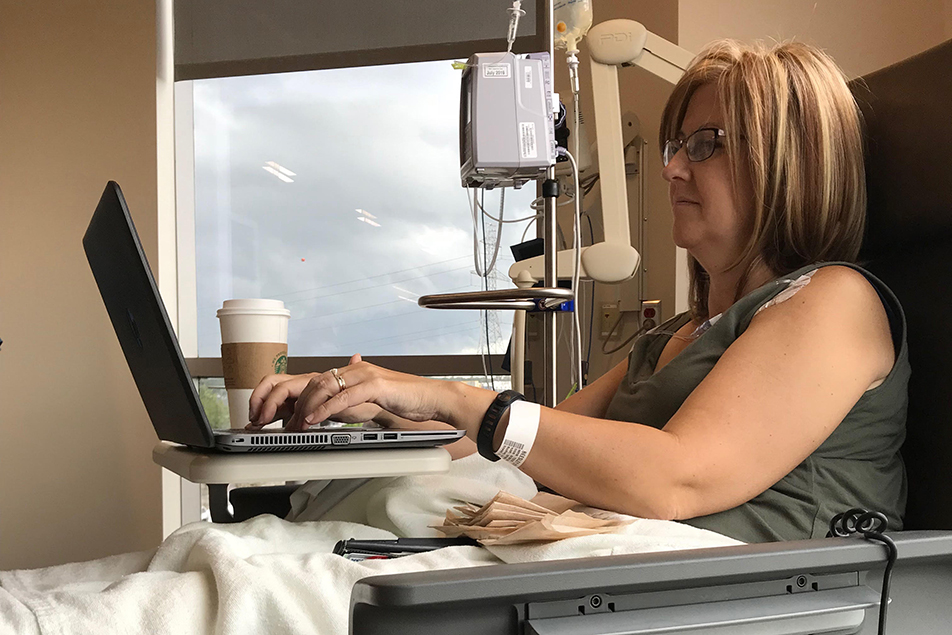
I’d had a colonoscopy 10 years prior, because my paternal grandmother had colon cancer. I scheduled the procedure for May 4. That day, they removed some polyps and that night I started experiencing pain. By the next day I had a temperature and went into the ER for treatment. During this time, the biopsy results from the colonoscopy came back. On May 7, I received the news that I had Adenocarcinoma of the colon.
When the physician sat down next to me, and told me it was cancer, I just cried. But also, there was part of me, always, on some level, that knew it was inevitable. I couldn’t believe it was happening, but also, of course it was, because my grandmother had it. I just felt like I had no control over what was happening to me. On some level, the same was true of the breast cancer. I’d been active – even run a half marathon – and tried to be healthy, hoping I wouldn’t get it. But it happened.
Even though I didn’t know why this was happening, I knew I had to fight it. I’d taken care of so many people in my career, I understood that we’re on this earth for a certain amount of time and we don’t have control, so we have to live every day to the fullest. I’ve seen people going through worse or being at the end of their life, and I knew I had a lot of life yet to live. The next day, I had an open resection, and they were able to get all of the cancer. My lymph nodes were OK.
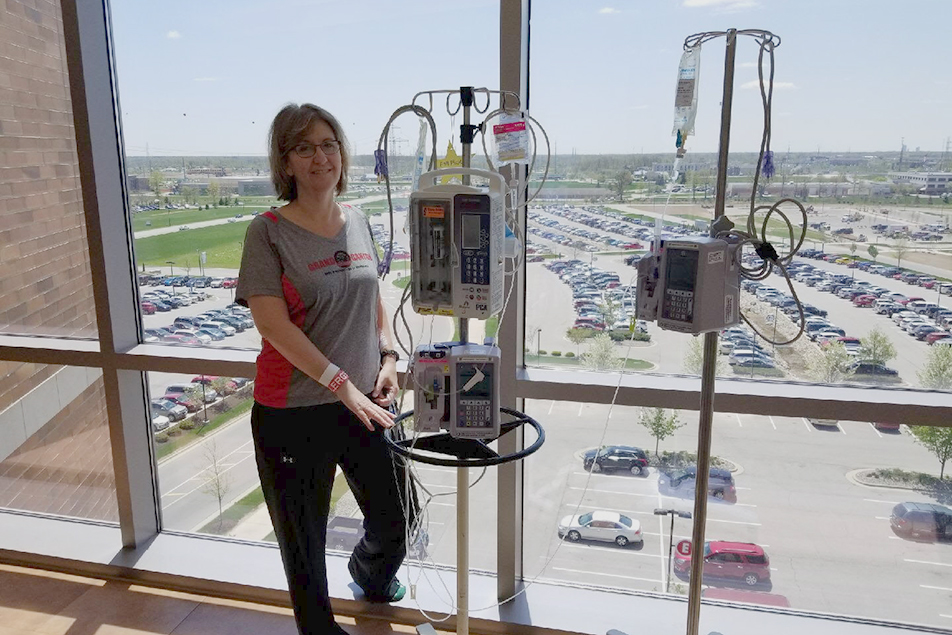
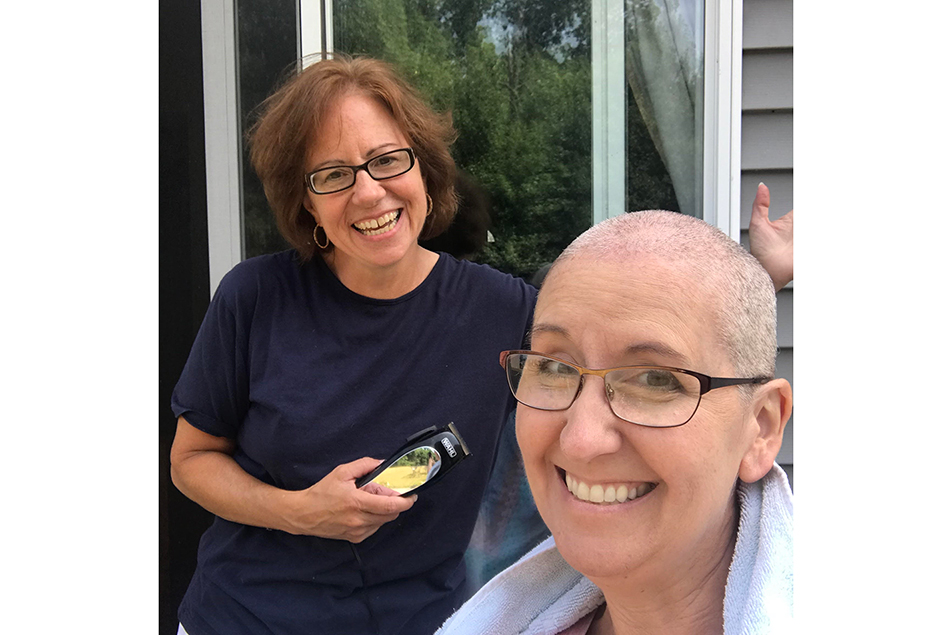
Because of the second cancer diagnosis, I had to wait six weeks to start chemo. In June, I began a series of four treatments followed by radiation treatments. Throughout the whole thing, my family was amazing. They were there through every procedure and took care of me when I went home. They made sure I got out for walks. I have to say it was challenging to have my kids be in the caretaker role. I would struggle to find words or lose my train of thought and they’d correct me. It was tough realizing suddenly I wasn’t the same.
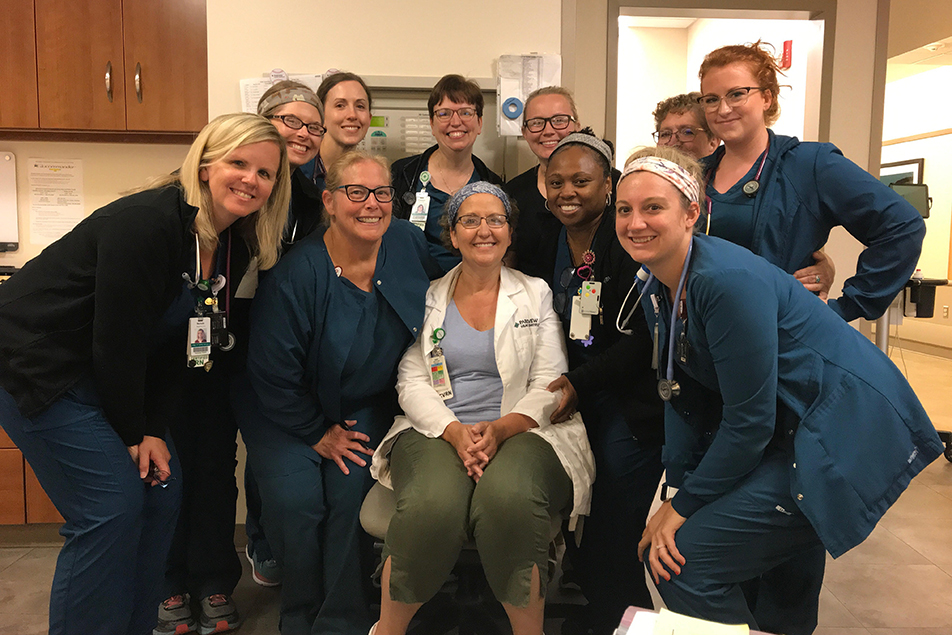
I have an amazing work family. They were there for me every step of the way and so incredibly supportive. Every day, I’d come to work and they’d ask how I was doing and I was very open. It was like I was getting care even when I wasn’t technically a patient. They were so incredible to me. And I was serving as an educator still in those moments, by imparting my experiences onto the caregivers. I knew, with their faith, I could get through it. I had my final radiation treatment on October 18, 2018.
After finishing treatments, my anxiety and mental health became a challenge. I was crying a lot and had crippling fear about everything, not just my health. I tried sitting in the sun, breathing and taking in the moments. It just wasn’t working. I had to go on medication to ease my anxiety, and I think people need to know that that’s OK. A health battle is overwhelming, and it’s so important to get the help you need to address those feelings.
Today, I am stable on all counts. I’ve had both a follow-up colonoscopy and mammogram, and both came back clear. I started in the survivorship program, and have met with the dietitian to start working on getting back on track with my health and to set small, achievable goals. The treatments kicked me into menopause, and I experienced some weight gain. I get very tired and my muscles get weak, but I’m doing well.
I’m definitely a champion for screenings. You just need to do it. People often ask how I’m taking everything, and I just tell them that this was a blessing. I was beyond blessed to find both cancers at stage 1. Losing my hair and going through treatments is so small when compared to the fact that I found it early and I get to live longer. I’ve seen patients who don’t know if they’ll get to see tomorrow, and now I do. I get to see my four grandchildren and get together with my family once a week. It’s because of the screenings.
I want people facing a tough diagnosis to know that they can do it. We’re all going to have obstacles in our lives. Everyone has something. You’re not alone. You have to do your best to wake up every morning and see the sunshine, even on a cloudy day. Know you can get through it. It might be difficult, and you might not know the outcome, but enjoy everything the best you can. Take small steps and know that what you do today is more than you did yesterday. You can do this.

